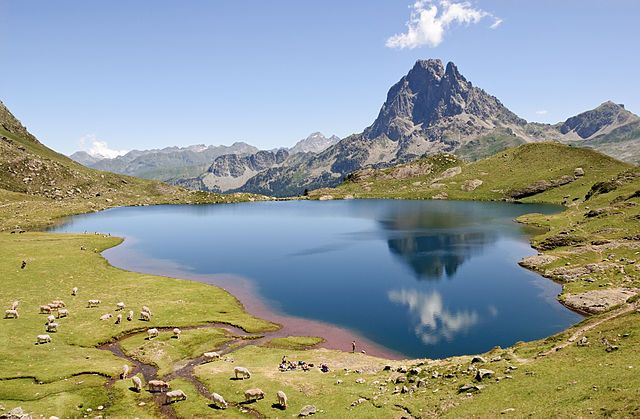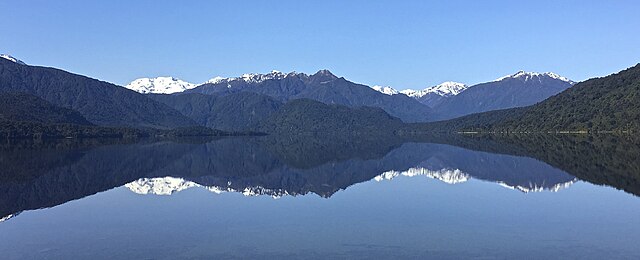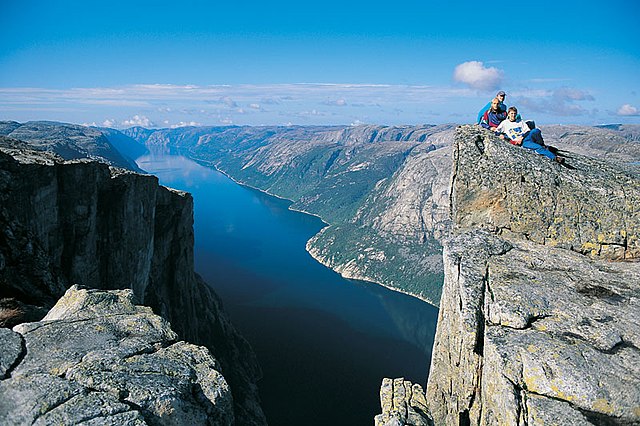A lake is a naturally occurring, relatively large and fixed body of water on the Earth's surface. It is localized in a basin or interconnected basins surrounded by dry land. Lakes lie completely on land and are separate from the ocean, although they may be connected with the ocean by rivers, such as Lake Ontario. Most lakes are freshwater and account for almost all the world's surface freshwater, but some are salt lakes with salinities even higher than that of seawater. Lakes vary significantly in surface area and volume.
Lac Gentau in the Ossau Valley of the Pyrenees, France
Lake Michigan during a storm near the Ludington Lighthouse
The crater lake of Mount Rinjani, Indonesia
Lake Kaniere is a glacial lake in the West Coast region of New Zealand.
A body of water or waterbody is any significant accumulation of water on the surface of Earth or another planet. The term most often refers to oceans, seas, and lakes, but it includes smaller pools of water such as ponds, wetlands, or more rarely, puddles. A body of water does not have to be still or contained; rivers, streams, canals, and other geographical features where water moves from one place to another are also considered bodies of water.
The Aubach, a watercourse in Germany
A fjord (Lysefjord) in Norway.
Port Jackson, Sydney, New South Wales
The Canal Grande in Venice, one of the major water-traffic corridors in the city. View from the Accademia bridge.








